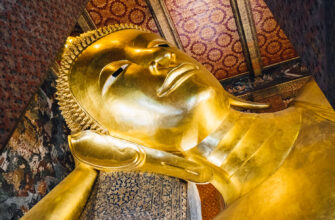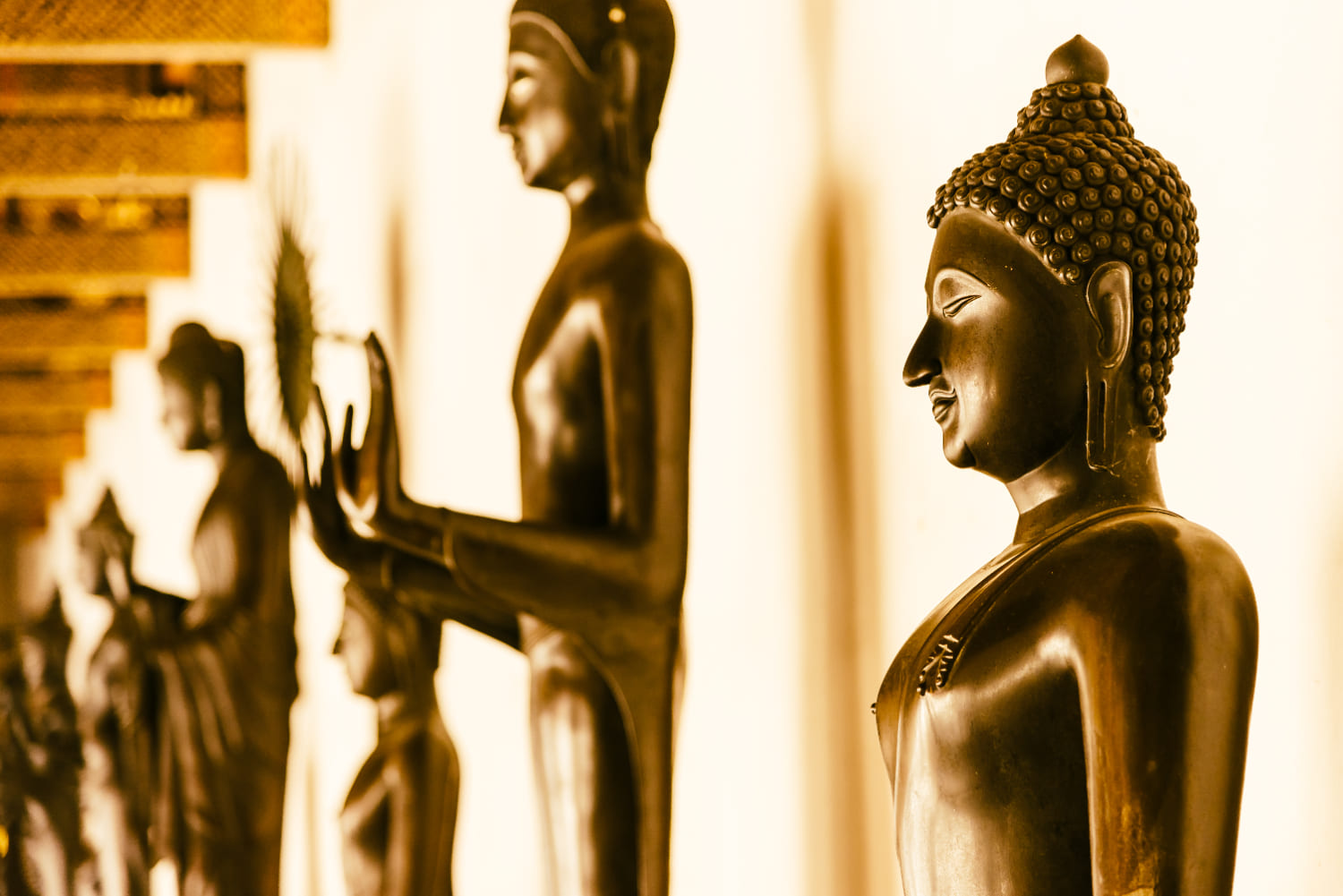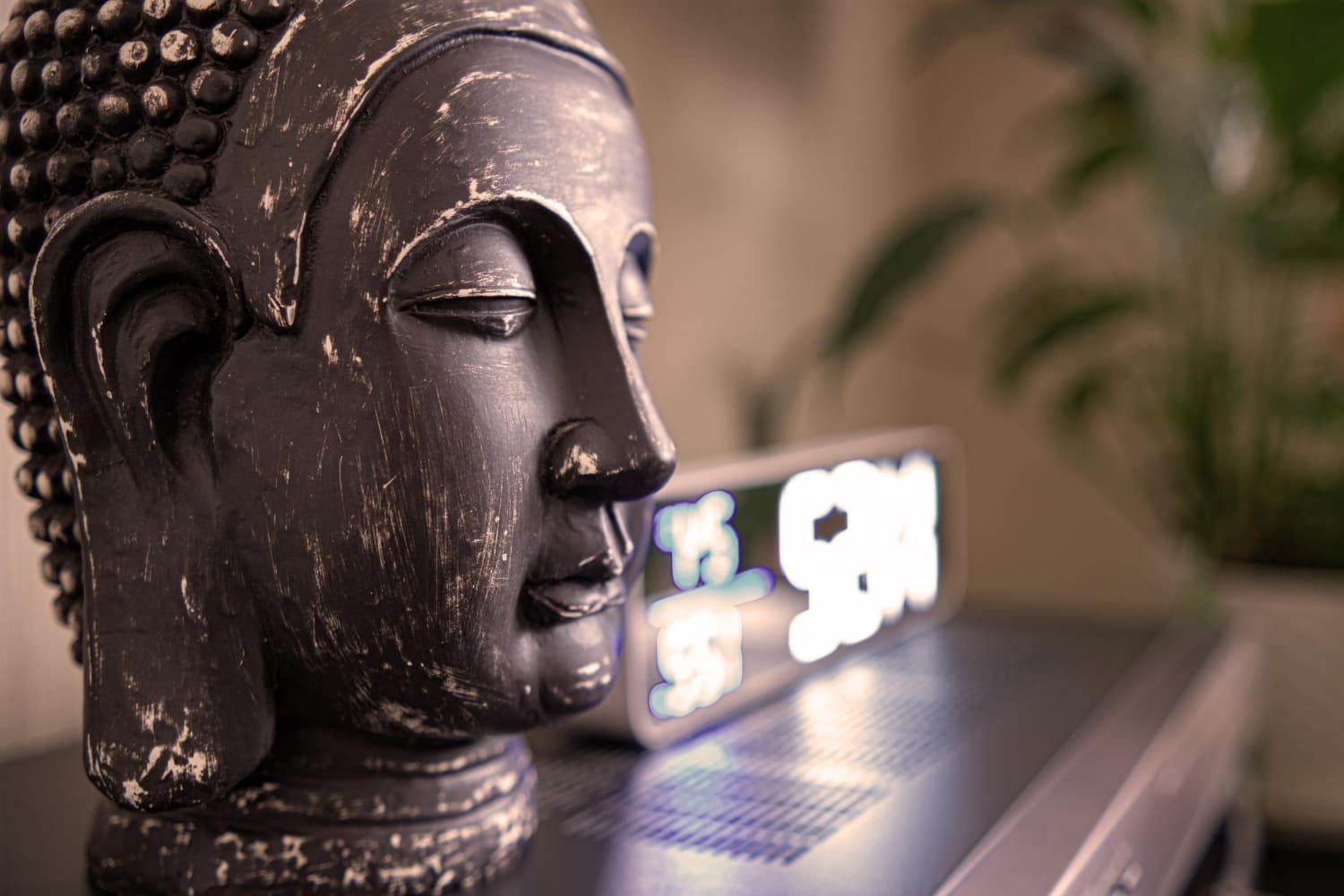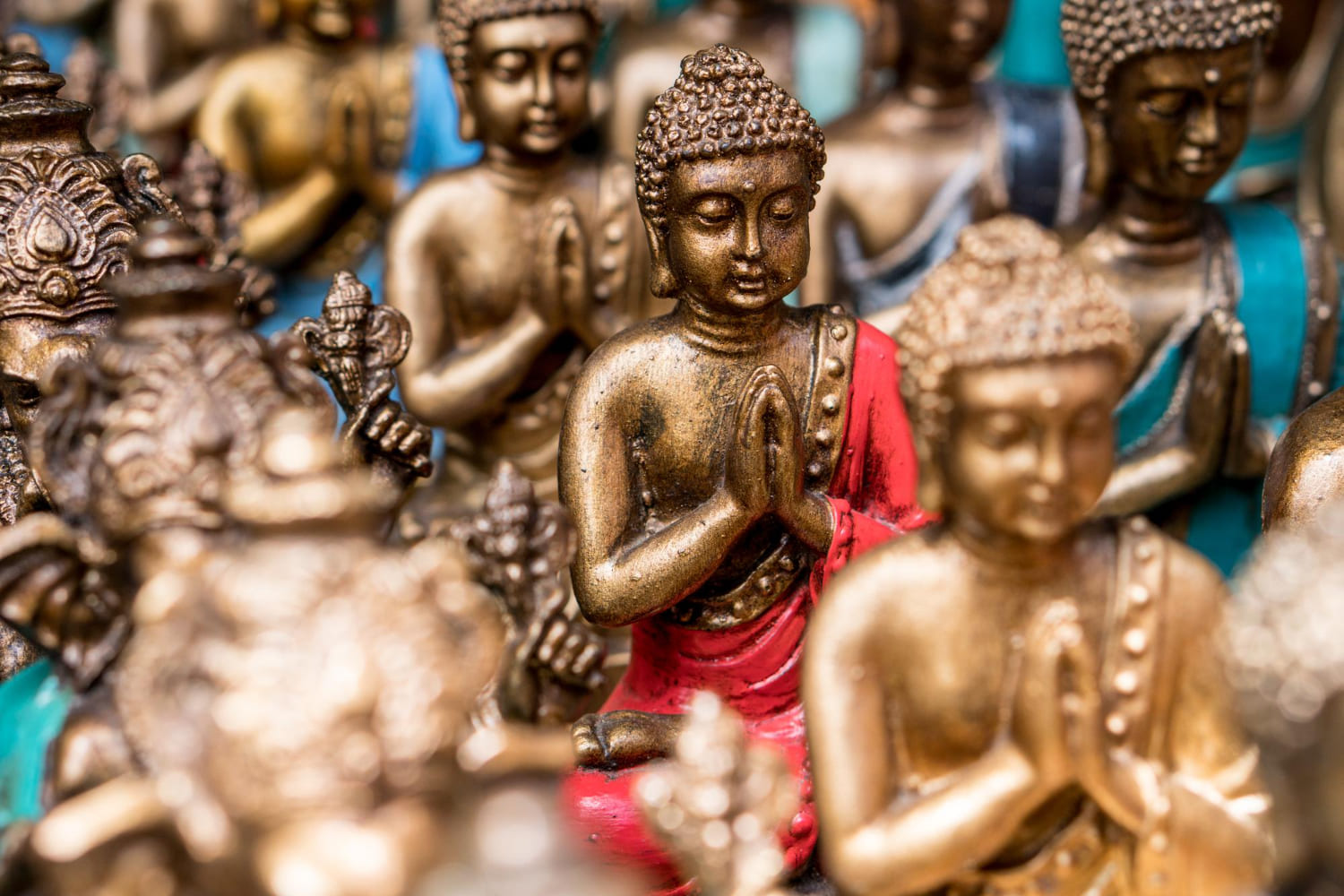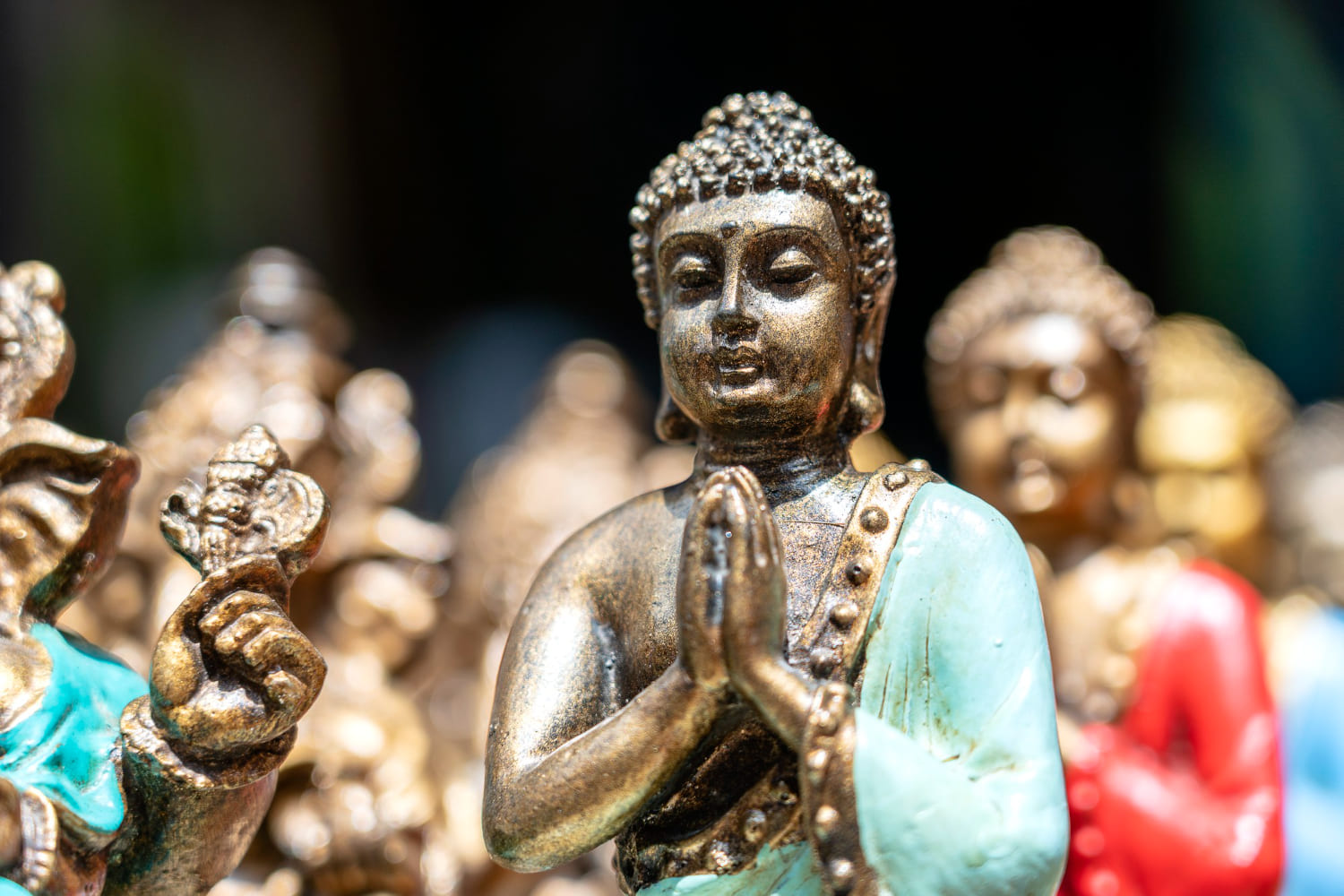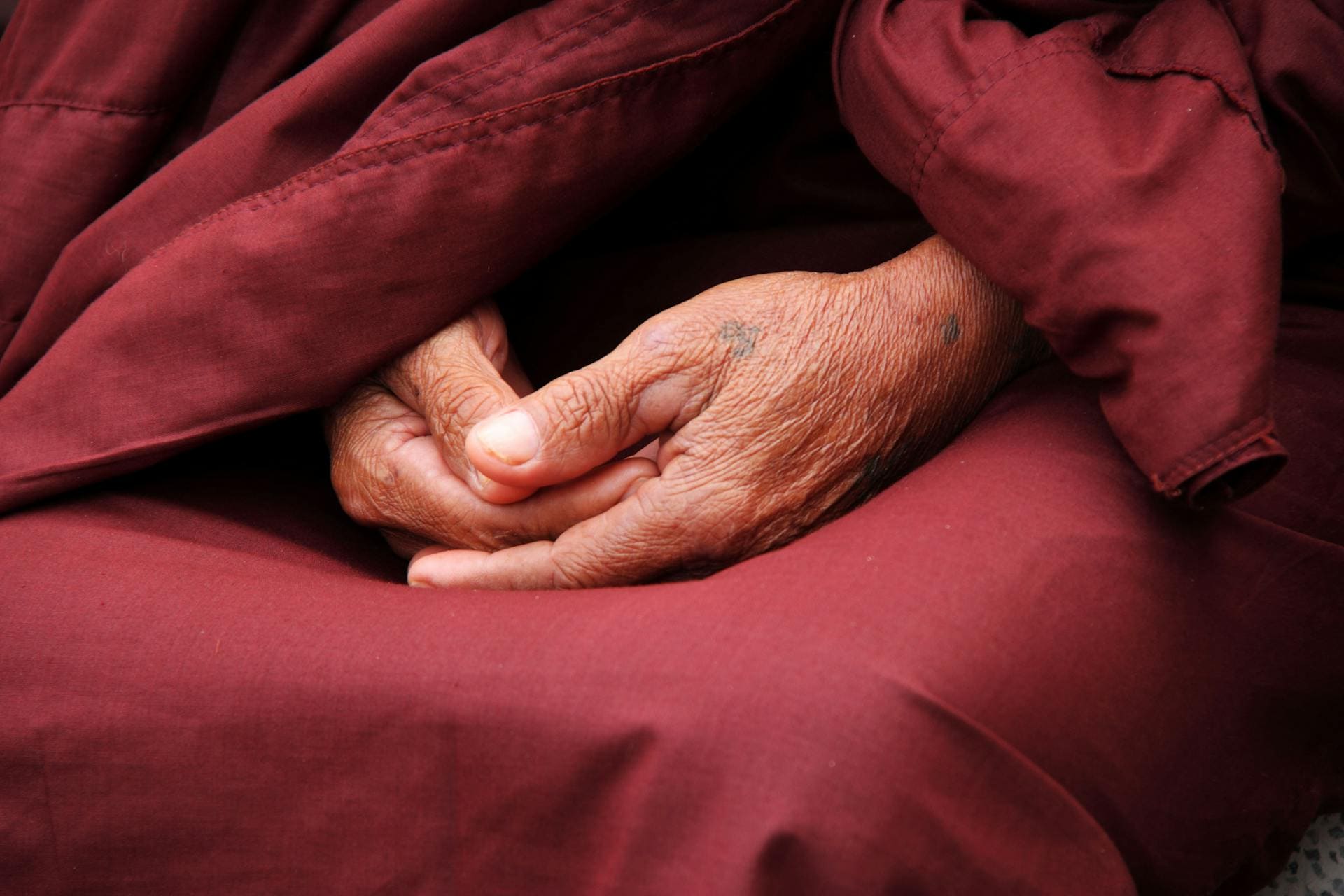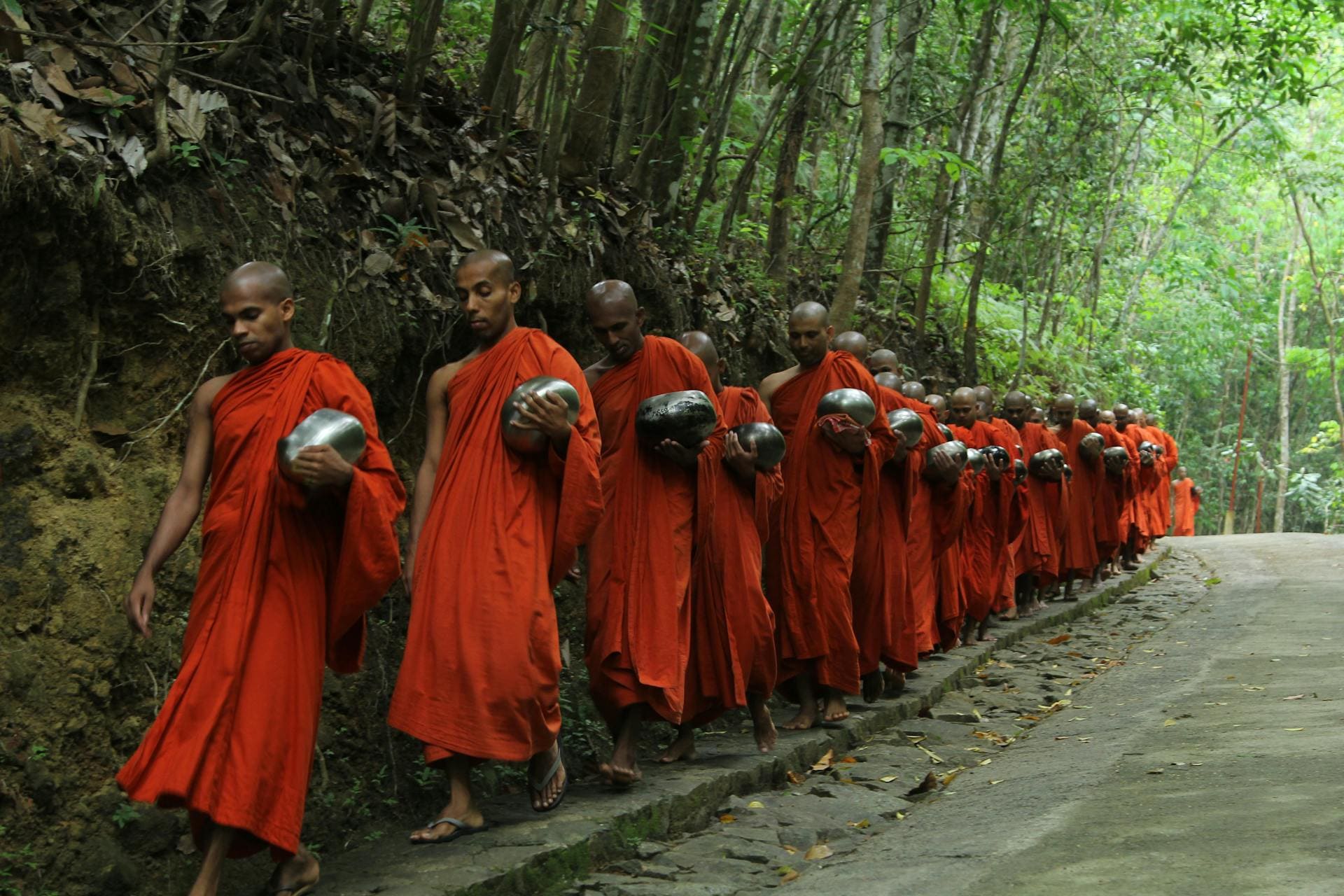While beliefs in the Buddhist faith (or, more accurately, family of faiths) are not necessarily monolithic, the majority of Buddhists believe that our death simply marks the end of one phase of our lives in the passage into the next.
Yes, Buddhists believe in an afterlife, but do not necessarily believe in the same kind of afterlife that members of other faith might.
Instead, it’s possible for a Buddhist to go through an almost infinite cycle of birth, death, and rebirth (over and over and over again).
This process continues for Buddhists for as long as necessary to achieve true awakening and legitimate enlightenment.
Buddhism | Afterlife Beliefs
Yes, in some ways the Buddhist faith is in support of an afterlife of sorts.
It’s just that it looks quite a bit different than the traditional “heaven and hell” ideas of many other religions around the world.
You see, Buddhists believe that after we pass the karma that we accumulated during that specific lifetime is used to inform when, where, and how we are to be reborn.
This cosmic and divine accounting is handled by the energies of the universe around us, as immutable as the law of gravity – and as intangible, too.
Buddhists believe that every individual choice we make, no matter how large or how small, will have an impact on our next life and either speed or impede our pathway to awakening and enlightenment.
On the one hand, this helps Buddhists to be a lot less afraid of death than those belonging to other faiths.
After all, this belief gives Buddhists a lot more control over how they are going to be reborn in the future.
On the other hand, though, it’s not hard to be at least a little bit nervous about how the universe may judge your decisions and your choices that influence how you are to be reborn going forward.
This is why preparing the mind, and using the power of meditation leading up to the moment of death, is such a core part of Buddhism.
Do Buddhists Believe in Heaven and Hell?
Though Buddhists do not believe in the traditional heaven and hell concept, or that there is some sort of reward or punishment conferred upon us by a God or creator after we pass, they do believe that there are other “realms” of samsara where different beings reside.
Six individual realms exist, rounds for heavenly beings and deities, human beings, fighting spirits, hungry ghosts, and animals, and there is even a realm of samsara for multiple Hells to exist.
Buddhists believe that we are always migrating through different samsaras as we go along our path to enlightenment.
One moment we may be living a faithful and good life, allowing us to dwell among the heavenly beings and deities in their samsara.
The next we may be angry, frustrated, and filled with energy that drains us – and that’ll lead us into the samsara of the fighting spirits.
The important thing, for Buddhists at least, is to always be looking for ways to eliminate ignorance, eliminate selfishness, and become as awake and as enlightened as possible with the time we’ve been given in this life.
At the same time, Buddhists recognize that we are always on a continuing journey toward enlightenment and that the passing of this life merely leads to rebirth in another.
What Do Buddhists Believe Happens When You Die?
Unlike other Indian religions around the time that Buddhism was established (in the sixth century BC), Buddhists do not believe in the idea of an eternal soul or an eternal essence in everything that lives.
Instead, all sentient life in Buddhism is made up of diverse energies that come together in this specific life and this specific life only.
They are then dispersed upon death, forming new life (related to the, accumulated in the past life), and creating something new – always marching towards the path of enlightenment and awakening.
Because of this, Buddhists do not necessarily believe in heaven and hell.
Instead, they believe that when you die you simply move into another consciousness, based on your karma, and start the journey all over again.
Closing Thoughts
Yes, Buddhists believe that there is life after death but not necessarily in the same kind of idea of the afterlife as many Western (and even other Eastern) religions might.
For Buddhists, death is merely a movement from one existence to another based on the karma that has been accumulated in that specific lifetime.
The cycle is always moving forward.
